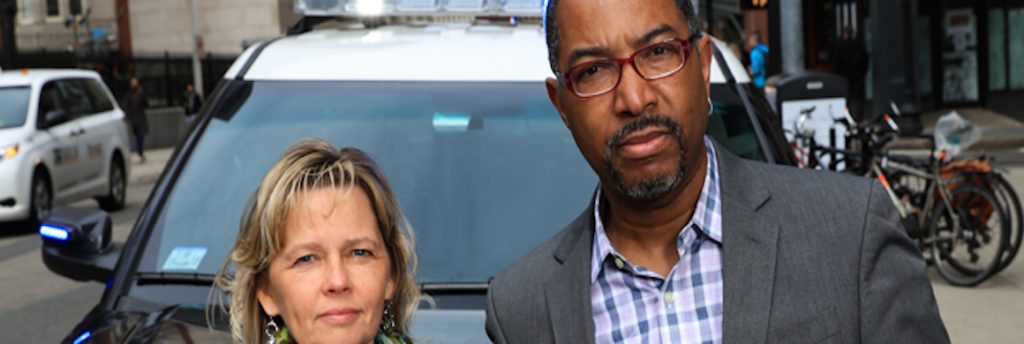Sawyer Professors Discuss Impact of Community Connections on Police Violence

Suffolk University’s Sawyer Business School recently posted an article on its blog in which associate professor of public service Brenda Bond and law professor Frank Rudy Cooper examined “the fragile relationships between law enforcement and the communities they serve” in order to discuss “how police departments can change,” particularly in Boston.
Cooper explains that Michael Brown’s case was particularly charged because, as the public would later discover, Ferguson, Missouri still had/has vestiges of a certain brand of “old-school racial oppression.”
“There was such a pervasive exploitation of a majority black population in an environment that had a history of being a sundown town [Areas where black people are warned to be gone before dark].”
Bond believes the Black Lives Matter movement, which Ferguson sparked, has engendered an “awareness among hopefully progressive police agencies that they have a duty and a responsibility that they have to behave and act in a way that meets the expectations of the community.”
She adds that the community connection the Boston police department maintains is largely responsible for why there hasn’t been a “Ferguson” in Boston.
Cooper offers a slightly more cynical take, based on his own experiences growing up in Cambridge: “Boston’s black community has not been completely energized and is not very powerful when compared to other major cities.”
One factor Cooper believes both sides should take into consideration is the fact that many men feel as if “they have to protect their sense of masculine esteem. The only thing you have left is the protection of your respect in the community, and that’s a powerful motivator to push back.”
Bond believes the “institution of policing operates almost the same way as it did 100 years ago.” To combat the violently anachronistic nature of the institution, she advocates for the creation of “lifelong training and professional development for officers.”
